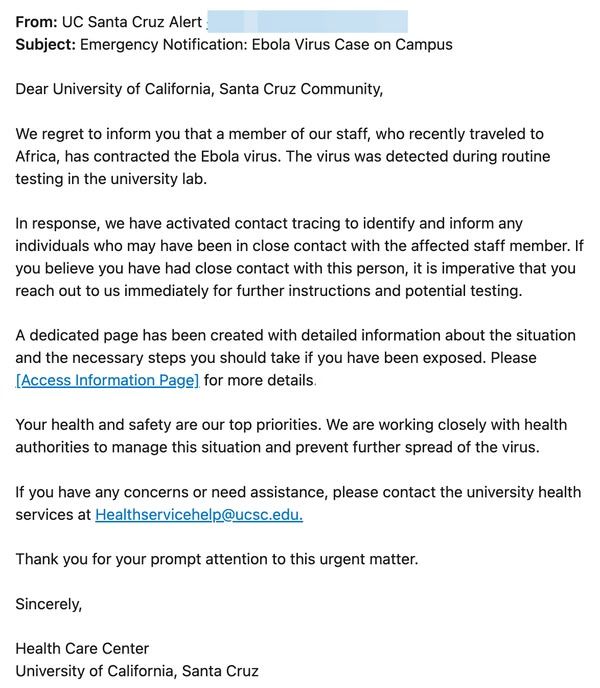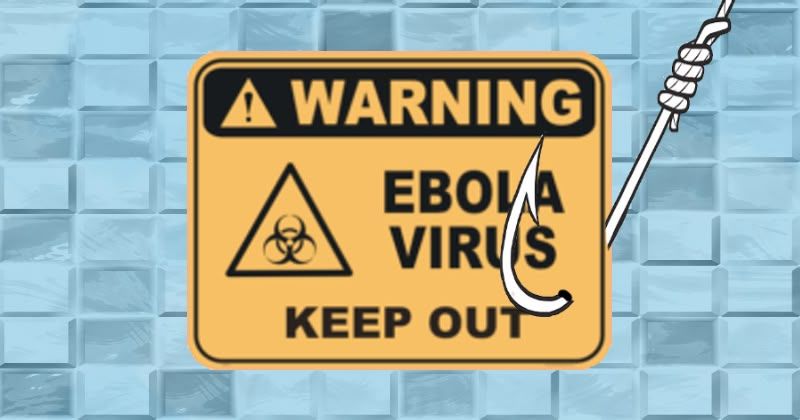A phishing train performed by the IT division of the College of California Santa Cruz (UCSC) has backfired, after inflicting pointless panic amongst college students and workers.
On the morning of Sunday August 18 2024, an e-mail was despatched out by the College’s IT group in what its Pupil Well being Heart described as an try to “remind the campus neighborhood about finest cybersecurity practices and assist stop future phishing makes an attempt”.
Nevertheless, the e-mail didn’t describe how workers and college students might higher shield their on-line accounts by, say, adopting robust and distinctive passwords or enabling multi-factor authentication.
As a substitute, it falsely claimed {that a} workers member had examined optimistic with the Ebola virus, after getting back from a visit to South Africa.
The e-mail, which had the topic line “Emergency Notification: Ebola Virus Case on Campus,” learn as follows:

Inside the e-mail, people have been suggested that if they’d been in shut contact with the (unnamed) affected workers member it was “crucial” they take rapid motion, and click on on a hyperlink to a webpage the place extra info – it claimed – had been posted.
After all, the e-mail’s declare that Ebola virus has been detected on campus was false, and anybody clicking on the hyperlink within the e-mail was in actuality susceptible to handing over their login credentials to cybercriminals.
Though on this case the e-mail wasn’t a phishing marketing campaign perpetrated by on-line crooks, however as a substitute a “phishing take a look at” orchestrated by UCSC’s IT division primarily based upon an actual phishing e-mail it had noticed a number of weeks earlier than.
Brian Corridor, UCSC’s chief info safety officer, apologised for the incident, acknowledging that phishing simulation e-mail was “not true and inappropriate” and that it doubtlessly undermined belief in public well being alerts.
Phishing simulation assessments like this are supposed to assist folks recognise and keep away from actual phishing makes an attempt. However, Corridor stated that he realised “the subject chosen for this simulation induced concern and inadvertently perpetuated dangerous details about South Africa.”
The reality is that scammers can use very soiled tips to idiot unsuspecting customers into clicking on harmful hyperlinks, and haven’t any qualms about utilizing underhand strategies to socially engineer their victims into handing over their delicate credentials.
So it is comprehensible that some IT departments would possibly really feel very tempted to copy these strategies when working a marketing campaign to check how nicely customers’ are defending themselves from falling for phishing assaults.
UCSC’s IT division has, like different organisations earlier than it, learnt the onerous method that not each try to boost safety consciousness shall be nicely acquired.


